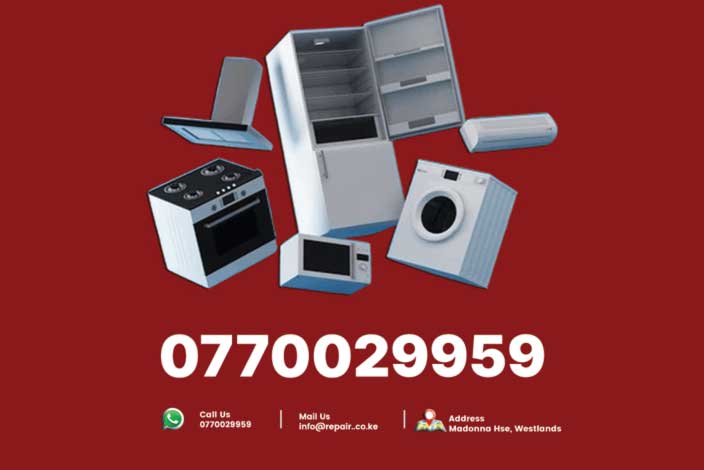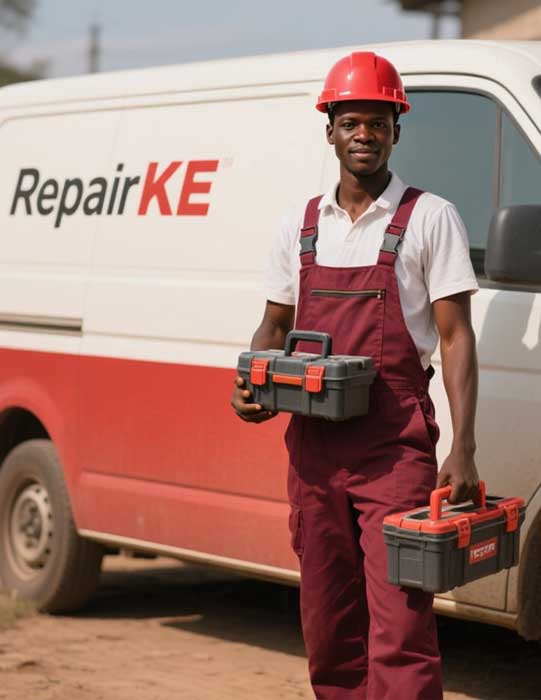Stove cookers and hobs are indispensable kitchen appliances. The head taps, also known as burner valves or control knobs, regulate gas or electric flow to the burners, directly impacting cooking performance. Over time, these components can wear out, leading to issues like gas leaks, inconsistent flames, or failure to ignite. RepairKE, a leading appliance repair service provider in Nairobi, specializes in stove cooker and hobs head taps replacement, ensuring safe and efficient kitchen operations. This article explores the importance of replacing head taps, common issues, the replacement process, and why professional service is critical.
Importance of Head Taps Replacement
Head taps are critical for controlling the fuel supply to stove burners, whether gas or electric. Replacing faulty or worn taps is essential for several reasons:
- Safety: Damaged taps can cause gas leaks, posing risks of fire or carbon monoxide poisoning, especially in Nairobi’s densely populated urban areas.
- Cooking Efficiency: Faulty taps lead to uneven flames or temperature inconsistencies, affecting food preparation quality in homes and commercial kitchens.
- Energy Savings: Properly functioning taps ensure precise fuel control, reducing gas or electricity waste, which is vital given Nairobi’s high energy costs.
- Appliance Longevity: Timely replacement prevents strain on other components, such as burners or ignition systems, extending the stove’s lifespan.
- Compliance: For commercial kitchens, functional taps ensure adherence to safety regulations, avoiding penalties or closures.
Common Issues with Head Taps
Head taps endure frequent use, exposure to heat, and grease buildup, leading to various problems. Common issues include:
- Gas Leaks: Worn seals or cracked valves cause gas to escape, detectable by hissing sounds or a gas odor.
- Inconsistent Flames: Faulty taps produce weak, flickering, or uneven flames, disrupting cooking.
- Stuck or Loose Knobs: Taps may become difficult to turn or overly loose, hindering precise control.
- Ignition Failures: Damaged taps may prevent burners from lighting, especially in gas stoves with electronic ignition.
- Corrosion or Grease Buildup: Nairobi’s humid climate and kitchen grease can corrode or clog taps, reducing functionality.
- Electrical Faults: In electric hobs, faulty taps may cause short circuits or failure to heat.
RepairKE’s technicians are trained to diagnose these issues accurately, ensuring safe and effective replacements.
Head Taps Replacement Process
RepairKE follows a structured process to replace stove cooker and hobs head taps, prioritizing safety and efficiency:
- Diagnostic Assessment: Technicians inspect the stove or hob to confirm tap-related issues, checking for leaks, corrosion, or electrical faults. For gas stoves, gas lines are tested for safety.
- Appliance Disconnection: The stove is disconnected from gas or electrical supplies to prevent hazards during repair.
- Tap Removal: Faulty taps are carefully removed, with attention to preserving surrounding components like burners or manifolds.
- Replacement: Genuine, brand-specific taps (e.g., for Ariston, Bosch, or Samsung) are installed, ensuring compatibility and durability. For gas stoves, seals and gaskets are replaced to prevent leaks.
- Testing: The appliance is reconnected and tested to verify flame consistency, ignition, and control precision. Gas stoves undergo leak tests using specialized equipment.
- Cleaning and Calibration: The stove is cleaned of grease or debris, and taps are calibrated for optimal performance.
- Client Guidance: RepairKE provides tips on maintaining taps, such as regular cleaning and avoiding excessive force on knobs.
The entire process typically takes 1–2 hours, with same-day service available across Nairobi.
Why Choose RepairKE?
RepairKE is a trusted provider in Nairobi, offering:
- Expertise: Technicians trained to service all major stove and hob brands, including LG, Von, and Miele.
- Genuine Parts: Authentic taps and components sourced from reliable suppliers, ensuring longevity.
- Safety Focus: Adherence to strict safety protocols, especially for gas appliances, critical in Nairobi’s urban settings.
- Affordable Pricing: Transparent rates, with tap replacements costing Ksh 2,500–Ksh 6,000, including parts and labor.
- Citywide Coverage: Prompt service in Westlands, Kilimani, Karen, and other Nairobi neighborhoods.
- Warranty: 3–6 month warranties on parts and labor, providing peace of mind.
Challenges in Nairobi
Nairobi’s environment presents unique challenges:
- Power Surges: Electrical hobs are susceptible to voltage fluctuations, damaging taps.
- Gas Supply Issues: Inconsistent gas pressure can strain taps, necessitating robust replacements.
- Grease and Humidity: Kitchen grease and humidity accelerate tap corrosion.
RepairKE mitigates these through quality parts, surge protection advice, and preventive maintenance.
Cost Estimates
Tap replacement costs vary by brand and model:
- Standard Gas Stove Tap: Ksh 1,500–Ksh 3,000 (part) + Ksh 1,000–Ksh 2,000 (labor).
- Electric Hob Tap: Ksh 2,000–Ksh 4,000 (part) + Ksh 1,500–Ksh 2,500 (labor).
- Diagnostic Fee: Ksh 1,000–Ksh 2,000 (waived if repair proceeds).






